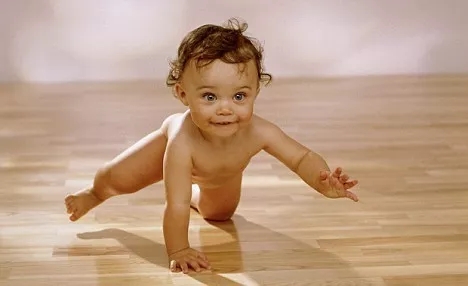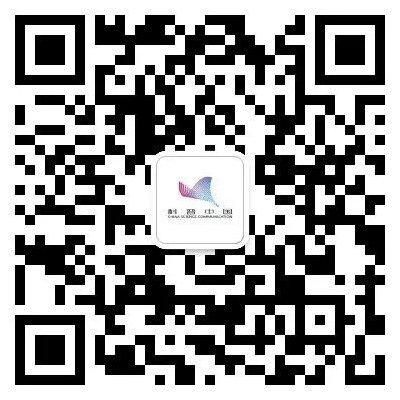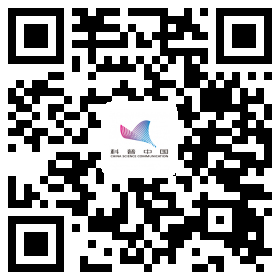这是 达医晓护 的第 2100 篇文章
上一篇我们介绍了宝宝从四月龄到六月龄各阶段发育的科普。本次的主题是七到九月龄的正常发育轨迹,如何促进宝宝的发育,以及在什么情况下需要引起重视去看医生。 7月龄宝宝会做些什么? 宝出生到现在已经半岁啦,不仅对父母来说值得庆祝,对于小宝宝来说这也是一个激动人心的时刻。除了吃喝拉撒睡以外,每天和父母的交流也越来越多,她的想象力现在活跃生动起来了。同时她也更善于记住一些事情,比如她最喜欢的人、玩具和书。 宝宝的情绪一直在发展,当他快乐和悲伤的时候会表现出来让你知道,同时也可以通过你说话的语气和脸上的表情来察觉辨别你的感受。你的宝宝可能会表现出对家庭成员或照顾者的强烈依恋,甚至会喜欢某些玩具和书籍。同时,你可能会开始注意到她有分离焦虑或怕生的迹象,不用担心,这是孩子成长的正常部分。 你可能会听到很多宝宝的唠叨。听到叫她自己的名字可能会回应,当她听到你说“不”时就会停下来。她也可以用肢体语言或姿势和你交流,比如,当想让你抱她起来时,她会举起手臂。 在这个月龄,你应该已经开始给宝宝喂食固体食物了。当宝宝已经吃够,他会通过挥舞小手或者把头转过去的动作。在这个年龄段,你的宝宝可以自如地翻身了,也可能会开始在屋子里肚子贴着地面,用手匍匐爬行,甚至可以手膝爬行。抱着她的时候,她也许会尝试站起来上下弹跳。 你的宝宝经常会通过把东西放在嘴里,或者仔细看他手里的东西的方式来探索和学习新的事物。他会敲打,摇晃玩具,以及尝试抓住积木。当他够不到他想要的东西时,他会找你帮忙。 在这个年龄,你的宝宝也许还会做到: 不需帮助而自己坐起来,有时会用到自己的胳膊来保持平衡 用手指捡起较小的物体,把物体向自己拖动。手指向自己拖动物体 在镜子中看到自己会去用手拍 去寻找并找到部分被隐藏的物体 倾听音乐 Age 7 months This is an exciting time for your baby. Her imagination comes alive now. She’s also better at remembering things, like her favourite people, toys and books. Your baby’s emotions keep developing. Baby will let you know when he’s happy and sad and can also tell how you’re feeling by your tone of voice and the look on your face.Your baby might show signs of strong attachment to family members or carers, and even prefer some toys and books to others. At the same time, you might see signs of separation anxiety or stranger anxiety.These are a normal part of a child’s development. You might hear a lot of babbling from your baby. She might respond to her own name and stop when she hears you say ‘no’. She might also communicate with you using gestures – for example, she might put her arms up when she wants you to lift her up. You have started feeding your baby solidsaround this age. Your baby will let you know when he’s had enough to eat – often by waving his hand or turning his head away.Your baby can roll both ways and might start to move around the house by commando crawling. She might even crawl using her hands and knees. If you hold her, she might be able to stand and bounce up and down. Your baby is exploring and learning all the time, often by putting things in his mouth or looking closely at what’s in his hand. He’ll bang and shake toys and try to grab blocks. When he can’t reach objects he wants, he’ll look to you for help. At this age your baby might also: · sit up without help, sometimes using her arms for balance · pick up smaller objects and use her fingers to drag things towards herself · pat her own image in the mirror · look for and findpartly hidden objects · listen to music. 8月龄宝宝会做些什么? 在这个年龄,你的宝宝喜欢和你一起玩,会很喜欢玩躲猫猫,摇铃铛以及寻找玩具。模仿你的动作,和你一起发出滑稽的声音或动物的声音,对他来说是非常有趣的。同时,和父母在一起玩耍也有助于宝宝感到被爱和安全感。 和之前一样,宝宝的情绪还在发展,他会让你知道他是高兴还是难过。他可能会很粘人,对你,其他亲密的家庭成员,或照顾他的人,但他还是有点害怕新面孔。这可能表现为分离焦虑和陌生人焦虑,记住这是这个年龄段儿童发育过程中正常的现象。 语言发育方面,宝宝在这个月龄表现还是牙牙学语,唠唠叨叨。她的咿呀学语甚至可能有上下起伏的音调,听起来像在说话。在这个年龄,大多数婴儿仍然使用肢体语言进行交流,比如制造噪音来吸引你的注意力。如果你的宝宝说话很早,你可能会听到她说1-2个字,像“妈妈”或“爸爸”的声音,但她并不知道这些字是什么意思。 你的宝宝开始学习如何更多地探索他的世界。例如,他会仔细观察像戒指或铃铛这样的物体,找到隐藏的玩具后打开,把积木放在一起敲敲打打,如果掉下去则会去寻找。另外,他还是会把大部分东西放进嘴里。在现在这个阶段,宝宝会反复练习用手拿起东西,并且使用手指抓住东西并向自己拖动。宝宝会通过爬行,屁股移动,或滚动的方式到处移动。他也可以自己独坐了。 在这个年龄,你的宝宝也许还会做到: 尝试咀嚼,这就意味着她现在已经可以吃捣碎或切成小块的食物 尝试自己吃,比如,自己用手拿起食物,或自己拿着奶瓶 会应要求找人,比如,如果你说,“妈妈在哪里?”她也许会四处张望寻找妈妈 扶站 Age 8 months At this age, your baby loves playing with you and really enjoys playing peekaboo, ringing bells and finding toys. Copying what you do and making funny sounds or animal noises together with you are lots of fun for your baby. Playing together also helps baby feel loved and secure. At this age your baby’s emotions are developing, and he’ll let you know when he’s happy or upset. He might show strong attachment to you and other close family members or carers, but he’s still a bit afraid of new faces. This might show up as separation anxiety and stranger anxiety, which are normal parts of children’s development around this age. Your baby is babbling. Her babbling might even have up and down tones that sound almost like talking. At this age most babies still use body language to communicate, like making noises to get your attention. If your baby is an early talker you might hear her say 1-2 words like ‘mama’ or ‘dada’, but she won’t know what these words mean. Around this time your baby starts working out how to learn more about his world. For example, he’ll look closely at objects like rings or bells, uncover toys after seeing them hidden, bang blocks together and look for them when he drops them. He’ll still put most things into his mouth too.Your baby is getting lots of practice picking up things and uses her fingers to catch and drag objects towards her.Crawling, rolling or shuffling are all ways your baby might be moving around. He can sit on his own. At this age your baby might also: · try to chew, which means she’s now ready for food mashed or minced into small pieces · try to feed herself – for example, by picking up her food or holding a drink bottle by herself · look for family members if you ask her to – for example, if you say, ‘Where’s Mummy?’, she might look around for her mother · stand with help. 9月龄宝宝会做些什么? 咿咿呀呀,拍手,爬行,扶站--这个月龄宝宝会做很多事情。 在这个年龄,宝宝的大脑正在经历快速成长。他的记忆力在提高,你也会发现他对喜欢的人、玩具和书籍有了更强的依恋。你的宝宝甚至会更喜欢一个特定的人--这可能是你,你的伴侣,或另一个亲密的家庭成员或照顾者。在这个年龄段,陌生人的分离焦虑和焦虑是很常见的, 是儿童发育过程中的正常部分。 当孩子开始表现出她的性格时,你就会对她将来可能的样子开始有所了解。她的情绪也在逐渐成熟——她可以表达害怕,也可以读懂并回应你的面部表情。 你的宝宝开始学会把单词和它们的含义联系起来,并理解你的肢体语言。比如,如果你用手去指某个东西,他可能会朝着它看。虽然他还会喋喋不休地重复“妈妈”或“爸爸”,但还是不知道这些词的意思。 在这个年龄,你的宝宝也许还会做到: 模仿声音 发出噪音以引起你的注意 探索她周围的一切——比如,她可能会敲响铃铛,敲打积木,找到隐藏的物体 当她听到你说“不”时,停止她正在做的事 通过抓、咬和咀嚼食物来练习她的进食技能 开始尝试用手指拿食物自己进食 Age 9 months Babbling, clapping hands, crawling, pulling up to stand – there’s a lot happening for your baby. At this age, your baby is having a growth spurt in his brain. This improves his memory and you might notice him forming stronger attachments to his favourite people, toys and books.Your baby might even prefer a particular person – this could be you, your partner, or another close family member or carer. Separation anxiety and anxiety around strangers is pretty common at this age. It might help to know that these are normal parts of child development. You’ll start to get an idea of what your child might be like in the future, as she starts showing you her personality. Her emotions are maturing too – she can express fear and also read and respond to your facial expressions. Your baby is starting to link words with their meanings and understand your body language – for example, if you point at something, he might look towards it. He’ll still be babbling, and might say ‘mama’ or ‘dada’ without knowing what these words mean. At this age your baby might also: · copy sounds · make noises to get your attention · explore everything around her – for example, she might ring bells, bang blocks and find hidden objects · stop what she’s doing when she hears you say ‘no’ · practise her eating skills by holding, biting and chewing food · start feeding herself with her fingers. 如何促进7到9月龄宝宝的发育? 1. 陪宝宝交谈: 这个年龄宝宝开始对交谈很感兴趣,因此和她谈论日常生活中的事情,诸如你现在正在做什么等将会有助于她理解单词的含义。记住,和宝宝说话,越多越好! 2. 倾听并回应宝宝的咿咿呀呀: 这样会培养宝宝的语言、沟通和读写能力,并会让他感到“被倾听”、被爱和被重视。用自己温暖、充满爱的方式说话或发出声音来回应是很重要的。你的宝宝会喜欢听到你上下起伏的声音,当你和他说话时喜欢看着你的脸。 3. 陪宝宝一起阅读: 阅读,说一说绘本中的图片,给宝宝讲故事都有助于培养宝宝的想象力。同时,这也为宝宝长大后学习单词和句子奠定了基础。此外,这样也对他在长大后理解语言和学习阅读有帮助。 4. 陪宝宝一起玩: 唱歌、玩玩具、玩躲猫猫,一起发出滑稽有趣的声音或动物的声音。在这个年龄,你的宝宝会很喜欢和你一起玩并和模仿你的动作,再者,一起玩也能让他感到被爱和安全。 5. 陪宝宝一起在户外活动: 和你在一起去户外会给宝宝带来许多不一样的体验——外面的世界很精彩,有太多新的东西可以看、闻、听和触摸。 6. 鼓励运动: 四处爬动和探索帮助宝宝锻炼肌肉力量,为以后的坐位站起和行走等更复杂的运动做准备。如果你的宝宝在爬行,你可以试着趴在地板上和她一起爬行,或者玩追逐游戏。 7. 安全的居家环境,可以让孩子可以不受伤害地自己四处爬动。 Helping baby development at 7-9 months 1. Talk to your baby: Your baby is interested in conversation, so talking about everyday things like what you’re doing will help her understand what words mean. And the more talk, the better! 2. Listen and respond to your baby’s babbling: This will build his language, communication and literacy skills, and make him feel ‘heard’, loved and valued. Responding by talking or making sounds in your own warm, loving way is important. Your baby will enjoy hearing your voice go up and down and love watching your face as you talk to him. 3. Read together: Reading, talking about pictures in books and telling stories help develop your baby’s imagination. This also lays the groundwork for learning words and sentences when your baby is older. In addition, these help him to understand language and learn to read as he gets older. 4. Play together: Sing songs, play with toys, play peekaboo, and make funny sounds or animal noises together. At this age, your baby really enjoys playing with you and copying what you do. Playing together also helps him feel loved and secure. 5. Spend time playing outdoors: Being out and about with you gives your baby lots of different experiences – there’s so much to see, smell, hear and touch. 6. Encourage moving: Moving and exploring help your baby build muscle strength for more complex movements like pulling to stand and walking. If your baby is crawling, you can try getting down on the floor and crawling around with her, or playing a game of chasey. 7. Make your home safe so your baby can move about without getting hurt. 在什么情况下需要引起重视去看医生 如果观察7-9月龄的宝宝有以下的情况或者有你担心的情况,需要带上宝宝去看医生。 视觉,听觉和交流 没有与你眼神接触或交流,不会追视移动的物体 没有咿呀学语 没有转向声响或声音 行为 没有表现出快乐还是悲伤的情绪 对照顾者几乎没有或根本没有情感表达——例如,他不会对你微笑 运动发育 没有翻身 感觉非常松软或非常僵硬 不能扶坐或扶站 使用一只手的要比另一只多得多 Red flags by age 7 to 9 months: See your child and family health nurse or GP if you have any concerns or notice that your seven to nine-month-old is having any of the following issues. Seeing, hearing and communicating · isn’t making eye contact with you, isn’t following moving objects with her eyes · isn’t babbling · isn’t turning towards sounds or voices. Behaviour · doesn’t show whether he’s happy or sad · shows little or no affection for carers – for example, he doesn’t smile at you. Movement · isn’t rolling · feels very floppy or stiff · can’t sit up or stand up with your help · uses one hand a lot more than the other.



作者:澳大利亚墨尔本大学医学院儿科博士
百汇医疗(中国)儿科医师
蒋本然


 科普中国公众号
科普中国公众号
 科普中国微博
科普中国微博

 帮助
帮助